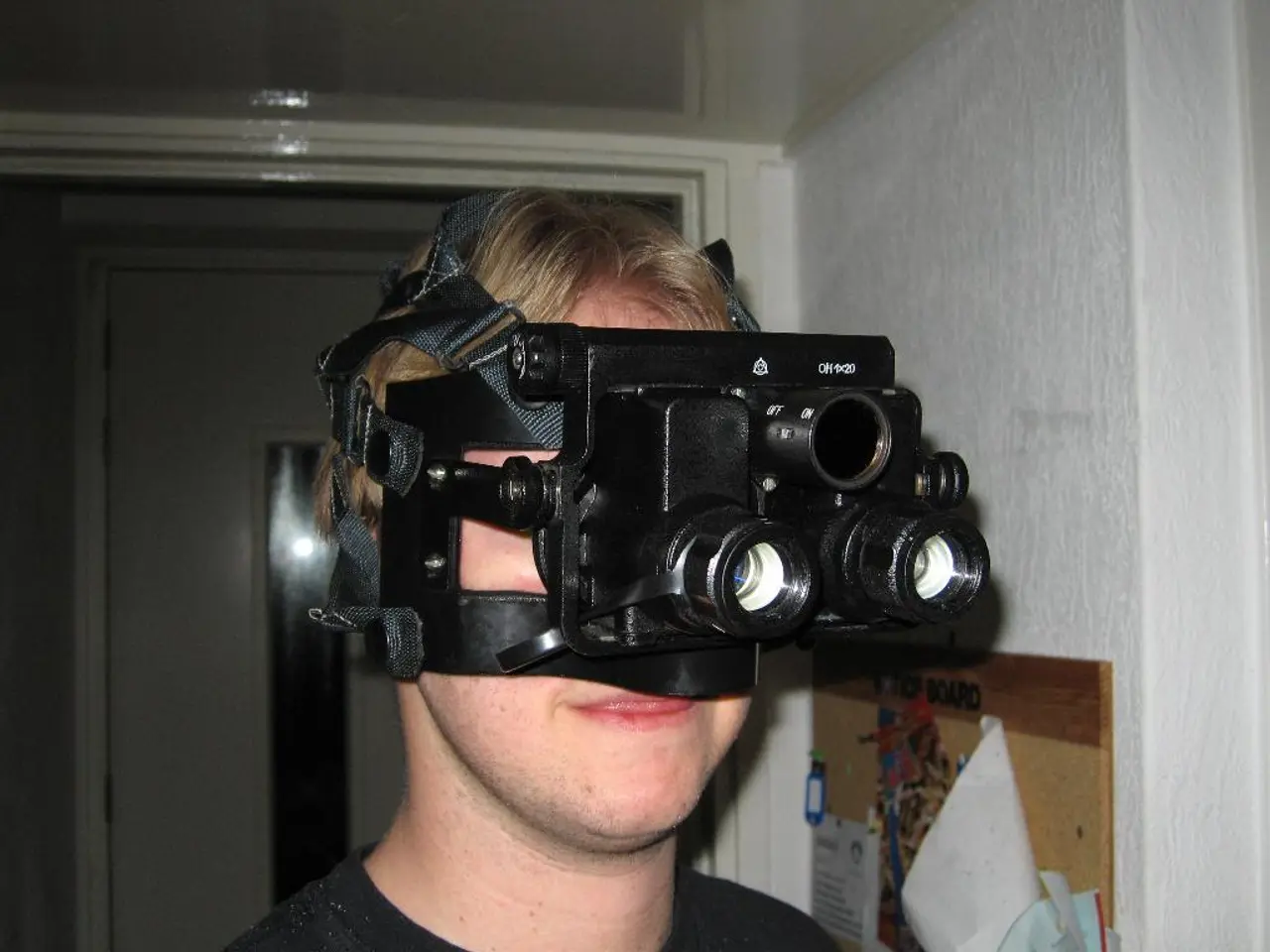Researchers Utilize Virtual Reality for Addressing Bipolar Disorders and Phobias
Virtual Reality Transforms Mental Health Care
Virtual Reality (VR) is revolutionizing the field of mental health care, offering immersive, personalized, and accessible treatment options for a variety of conditions. Researchers at institutions such as King's College London and Duke University School of Medicine are at the forefront of this innovative movement [1][2].
One groundbreaking application of VR is exposure therapy for phobias and Post-Traumatic Stress Disorder (PTSD). By creating customizable scenarios that safely expose patients to their triggers, VR accelerates desensitization and anxiety reduction [1][4]. Unlike in vivo therapy, VR provides precise control over exposure levels, safeguards against real-world risks, and allows repeatable, consistent sessions crucial for effective desensitization.
VR is also proving beneficial for anxiety management and relaxation. Immersive VR environments designed with calming visuals and guided mindfulness techniques help lower stress and anxiety levels, improving patient engagement and accessibility beyond clinical settings [1].
In the realm of schizophrenia treatment, VR combined with cognitive behavioral therapy (CBT) and mindfulness training shows promise. It improves social functioning, reduces paranoia and social avoidance, and strengthens emotional regulation [2][3]. The immersive and interactive qualities of VR increase patient motivation and can deliver scalable, remote-access treatments, potentially reducing reliance on medications.
VR also aids in social skills training, safely simulating social situations for practicing interpersonal interactions, beneficial for social anxiety and schizophrenia [3].
Compared to traditional methods, VR therapy offers several advantages. It provides control and customization, precise adjustment of exposure intensity tailored to the patient. VR is safer, eliminating physical hazards that may be present in real-world exposure. Repeatability and consistency are also advantages, as identical virtual setups can be repeated as needed [1]. Engagement and accessibility are also improved, with more engaging, interactive sessions and the potential for remote use [1]. Scalability is also enhanced, as VR treatments can be easily scaled through digital platforms [1].
Clinical trials show VR therapies significantly reduce symptoms, with efficacy comparable or superior to traditional CBT in vivo, particularly for anxiety and social phobia [1][3][4]. VR also enhances patient motivation, especially for younger or less motivated individuals, by providing interactive and immersive experiences [2].
Looking ahead, VR mental health care is poised to expand further as technology continues to advance. Researchers are aiming to develop preventive interventions that promote mental well-being by creating virtual scenarios that mirror students' daily experiences [1]. VR's adaptability makes it a valuable tool for addressing a wide range of mental health issues, from PTSD to depression [3].
Ongoing research is also exploring the use of VR in training mental health professionals [1]. Recent studies have shown the potential of VR in treating conditions such as phobias, anxiety disorders, and schizophrenia [1].
In summary, VR mental health care offers a safe, controlled, repeatable, and engaging alternative or complement to traditional therapies for disorders such as phobias, anxiety, PTSD, and schizophrenia, improving treatment accessibility, personalization, and outcomes [1][2][3][4]. VR is transforming traditional therapeutic methods and providing new avenues for understanding and managing various mental health conditions.
[1] King's College London. (2021). Virtual Reality in Mental Health Care. Retrieved from https://www.kcl.ac.uk/health/research/virtual-reality-in-mental-health-care
[2] Duke University School of Medicine. (2021). Virtual Reality for Mental Health Care. Retrieved from https://medschool.duke.edu/research/virtual-reality-mental-health-care
[3] American Psychological Association. (2021). Virtual Reality and Mental Health. Retrieved from https://www.apa.org/topics/virtual-reality-mental-health
[4] Harvard Medical School. (2021). Virtual Reality and Mental Health. Retrieved from https://www.health.harvard.edu/mind-and-mood/virtual-reality-and-mental-health
- Technology advances in Virtual Reality (VR) are propelling science in the health-and-wellness sector, particularly mental health, with researchers at institutions like King's College London and Duke University School of Medicine leading the charge.
- VR therapeutic methods, such as exposure therapy for phobias and Post-Traumatic Stress Disorder (PTSD), are leveraging technology to provide personalized, accessible, and customizable treatments, offering benefits over traditional in vivo therapy.
- As technology enhances further, the potential applications of VR in mental health extend to preventive interventions promoting mental well-being, therapy training for mental health professionals, and addressing a wide range of mental health issues, from depression to schizophrenia.




